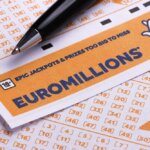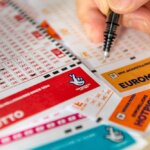The EuroMillions lottery stands as one of Europe’s most popular multinational games, offering participants the chance to win substantial cash prizes. Launched in 2004, it is operated by a collaboration of national lotteries from several countries, including the UK, France, Spain, Austria, Belgium, Ireland, Luxembourg, Portugal, and Switzerland. The game draws attention with its impressive jackpots, which have the potential to roll over and magnify when not claimed.
Players select five main numbers from 1 to 50 and two Lucky Stars from 1 to 12, with draws taking place every Tuesday and Friday evening. The odds of winning a prize start at 1 in 13 for matching just two main numbers, and the chance of securing the jackpot stands at about 1 in 139 million. However, the appeal of the EuroMillions is not only in the prize money; proceeds from the lottery are often used to support various charities and community projects, enhancing its popularity and good will.
Winning the EuroMillions could be life-changing, as jackpots can soar into the tens or even hundreds of millions of Euros. The largest prize in the history of the game was over €200 million. While the prospect of winning such a substantial amount may be slim, it continues to inspire countless individuals to try their luck twice a week.
History of the EuroMillions
The EuroMillions is a transnational lottery requiring seven correct numbers to win the jackpot. It was established by Française des Jeux, Loterías y Apuestas del Estado, and Camelot.
Origination and Founding Members
The EuroMillions lottery was conceived in 2004 by three organising companies: Française des Jeux of France, Loterías y Apuestas del Estado of Spain, and the United Kingdom’s Camelot. These founding members launched the lottery on 7 February 2004, with the first draw taking place on 13 February 2004.
Expansion and Inclusion of New Members
After initial success, the EuroMillions expanded to include six additional countries: Austria, Belgium, Ireland, Luxembourg, Portugal, and Switzerland. This expansion, concluded in October 2004, allowed for a broader player base and larger accumulative jackpots.
Major Milestones
EuroMillions has had several notable jackpots and updates to its format:
- In 2011, the jackpot cap was established at €190 million.
- Starting 24 September 2016, the starting jackpot increased to €17 million and the number of “Lucky Stars” to pick from rose from 11 to 12, altering the odds of winning.
- The record for the largest jackpot was set on 8 October 2019, when a single ticket holder won €190 million.
How to Play EuroMillions
Playing EuroMillions involves purchasing a ticket, selecting numbers, and awaiting draw times. It’s straightforward and offers multiple opportunities for winning.
Ticket Purchase
Tickets for EuroMillions can be bought in person from authorised retailers across participating countries or online, which is convenient for players worldwide. The players must be 18 years or older, though the age may vary (16 in the UK).
Number Selection
To play, one must select five main numbers from 1 to 50, and two Lucky Stars from 1 to 12 on their ticket. Players can choose their numbers manually or opt for a ‘Lucky Dip’ for random selections.
| Main Numbers | Lucky Stars |
|---|---|
| 1 to 50 | 1 to 12 |
Draw Times and Procedures
EuroMillions draws take place twice a week, on Tuesday and Friday evenings usually at 20:45 CET in Paris. The winning numbers and Lucky Stars are selected using two separate machines, ensuring complete randomness.
Prize Structure
The EuroMillions lottery has a tiered prize structure, ranging from the jackpot to smaller secondary prizes. This multi-tier approach provides a variety of ways to win.
Winning Odds
EuroMillions offers a 1 in 13 chance of winning any prize. The odds of winning the jackpot, however, are 1 in 139,838,160. Here’s a breakdown of the odds for each prize tier:
| Match | Odds of Winning |
|---|---|
| 5 + 2 Stars | 1 in 139,838,160 |
| 5 + 1 Star | 1 in 6,991,908 |
| 5 | 1 in 3,107,515 |
| 4 + 2 Stars | 1 in 621,503 |
| 4 + 1 Star | 1 in 31,075 |
| 4 | 1 in 13,811 |
| 3 + 2 Stars | 1 in 14,125 |
| 3 + 1 Star | 1 in 706 |
| 3 | 1 in 314 |
| 2 + 2 Stars | 1 in 985 |
| 2 + 1 Star | 1 in 49 |
| 2 | 1 in 22 |
| 1 + 2 Stars | 1 in 188 |
| 1 + 1 Star | 1 in 10 |
Jackpot Cap Mechanism
The EuroMillions jackpot is capped at €220 million. Once this ceiling is reached, it can remain at the cap for up to five draws. If no player wins the jackpot after five draws at the cap, the prize money rolls down to the next highest tier where there are winners.
Secondary Prizes
Players have the chance to win significant secondary prizes. These range from approximately €3.30 for matching two main numbers, to over €300,000 for matching five main numbers and one Lucky Star. The exact prize amounts vary depending on the draw’s prize fund and number of winners per tier.
Biggest Jackpots and Winners
Euromillions has awarded some of the most substantial jackpots in European lottery history, changing lives with staggering prize amounts. The winners’ stories often capture public imagination, revealing diverse backgrounds and plans for the newfound wealth.
Record Jackpots
| Date | Amount Won | Country |
|---|---|---|
| 8 Oct 2021 | £170 million | France |
| 11 Dec 2020 | £200 million | United Kingdom |
| 23 Feb 2021 | £210 million | Switzerland |
These record jackpots represent the pinnacle of Euromillions winnings. The largest jackpot to date was won in Switzerland in February 2021, topping £210 million. These enormous prize amounts illustrate the life-changing potential of Euromillions.
Notable Winners’ Stories
- Colin and Chris Weir: In July 2011, this Scottish couple won £161 million, leading to significant contributions to charity and the establishment of the Weir Charitable Trust.
- Adrian and Gillian Bayford: They won £148 million in August 2012. The Bayfords invested in property, music memorabilia, and supported local businesses in their community.
Each winner’s account is unique, from philanthropy to personal investment, showcasing the variety of impacts a Euromillions jackpot has on the lives of winners.
Impact and Beneficiaries
The Euromillions Lottery has a significant effect on numerous facets of society, particularly in charitable provisions, economic stimulus, and cultural enrichment.
Charity Funding
Euromillions dedicates a portion of ticket sales to various charitable causes. In the UK, The National Lottery Community Fund allocates funds to health, education, environment, and charitable initiatives. For example, £30 million is raised weekly for projects.
| Country | Charity Contribution | Notable Projects Funded |
|---|---|---|
| UK | £30 million per week | Local health programmes |
| France | Pacifique des Jeux | Sports development |
| Spain | Fundación ONCE | Disability support |
Economic Contributions
Euromillions ticket sales and subsequent winnings stimulate economies. Winners often invest in real estate or start businesses, creating jobs and boosting local economic activities. Jackpot prizes inject vast sums of money; a single Jackpot can amount to over €100 million.
- Investments: Real estate, business ventures
- Job Creation: Local employment opportunities
- Tax Revenue: Contributions to national budgets
Publicity and Cultural Impact
Winners’ stories garner media attention, influencing lottery culture and public interest. The lottery also fosters a shared cultural experience across participating countries, as people come together with the common hope of winning.
- Media Coverage: Extensive reporting on winners’ stories
- Shared Experience: Unifying effect on participants from different countries
Playing EuroMillions Internationally
The EuroMillions lottery offers people around the world the chance to win significant cash prizes. They must, however, adhere to the regulations of the participating countries and understand the implications of currency and taxation.
Online Play
Online lottery services enable international players to purchase EuroMillions tickets without needing to be in a participating country. These services typically act as intermediaries, purchasing tickets on behalf of the player. It is important to verify the legitimacy of these platforms and ensure they comply with relevant laws and regulations.
Participating Countries
EuroMillions tickets can be purchased in nine participating European countries including:
- Austria
- Belgium
- France
- Ireland
- Luxembourg
- Portugal
- Spain
- Switzerland
- United Kingdom
Residents of non-participating countries can play through authorised online channels.
Currency and Tax Considerations
Winnings are paid in the currency of the country where the ticket was purchased. For example:
| Country | Currency |
|---|---|
| France | Euro |
| Switzerland | Swiss franc |
| United Kingdom | Pound sterling |
Taxes on winnings vary by country; some impose substantial levies, while others, like the UK, do not tax lottery winnings at all. Players are advised to consult finance experts regarding potential taxes in their resident country.
Statistical Analysis
The statistical analysis of EuroMillions lottery draws offers insights into patterns and frequencies of winning numbers and jackpots. This section examines historical data to provide a quantitative perspective on the game.
Winning Number Patterns
Analysing past EuroMillions results, patterns can sometimes be observed. However, each draw is a random event, and any perceived patterns do not influence the outcomes of future draws. For example:
- Odd vs Even Numbers: The table below shows the distribution of odd and even numbers drawn in the past year.
| Odd Numbers Drawn | Even Numbers Drawn |
|---|---|
| 52% | 48% |
- Numerical Ranges: Winning numbers are spread across the entire range of 1 to 50. The frequency of the numbers drawn in each decile can be depicted as:
| Range | Frequency |
|---|---|
| 1-10 | 20% |
| 11-20 | 18% |
| 21-30 | 22% |
| 31-40 | 25% |
| 41-50 | 15% |
Jackpot Frequency Analysis
The frequency of jackpot wins in EuroMillions is determined by the probability of matching all seven numbers correctly. The table below illustrates the number of jackpot wins per year for the past five years:
| Year | Jackpot Wins |
|---|---|
| 2019 | 15 |
| 2020 | 12 |
| 2021 | 10 |
| 2022 | 16 |
| 2023 | 18 |
The probability of securing a jackpot is static at 1 in 139,838,160 per ticket. Thus, the variation in the number of winners per year is due to the random nature of the draw and the total number of tickets sold.
Scams and Frauds
The EuroMillions Lottery attracts numerous scam operations that exploit the game’s popularity. Players should be vigilant about scams which come in various forms and are essential to report if encountered.
Common Scams
Email and Letter Scams – These typically inform recipients they have won prizes when they have not entered the lottery. Such messages often request personal details or payments to ‘release’ the purported winnings.
Telephone Scams – Scammers may call individuals to congratulate them on a false win, urging immediate action to claim a non-existent prize while requesting personal details or funds.
Social Media Scams – Fraudsters might use social media to impersonate EuroMillions or past winners, promising shared winnings in exchange for personal information or a fee.
Protecting Yourself
- Never share personal information or make payments to claim a prize.
- Verify the source by contacting the official EuroMillions lottery before taking any action.
- Be cautious with unsolicited communications; if you didn’t enter, you didn’t win.
- Keep your lottery tickets secure and only purchase from authorised retailers or the official EuroMillions website.
Reporting Suspected Fraud
- Contact Action Fraud – the UK’s national reporting centre for fraud and cybercrime – to report any scam attempts.
- Relay any communication, details, or evidence you have to assist with their investigations.
- Notify friends and family to prevent further spread and fallout from such scams.
FAQs and Tips
In this section, readers will find practical advice on claiming EuroMillions winnings, principles of responsible play, and answers to commonly asked questions.
How to Claim Winnings
Under £50,000
For prizes of £50,000 or less, winners can claim their winnings at an authorised retailer, by post, or online, depending on where the ticket was purchased. Prizes must be claimed within 180 days of the draw date.
Over £50,000
Prizes over £50,000 are claimed by first calling the National Lottery Customer Care Team to arrange payment. These winnings are typically paid out at a regional lottery office or by bank transfer.
Responsible Play
Setting Limits
Players are encouraged to set budgets and stick to them. The National Lottery offers tools for limit setting on time and spending through their accounts.
Seeking Help
Should a player feel they are losing control of their gambling, it is advisable to reach out for support. Organisations such as BeGambleAware offer free and confidential help.
Frequently Asked Questions
How long do I have to claim my prize?
Winners have 180 days from the draw date to collect their prizes.
Can I play EuroMillions if I do not reside in a participating country?
Yes, EuroMillions tickets can be purchased via authorised online channels which allow participation from non-resident players.
Are EuroMillions winnings taxable?
In the UK, EuroMillions prizes are not subject to tax. However, winners should check the tax regulations in their respective countries or consult with a financial advisor.





